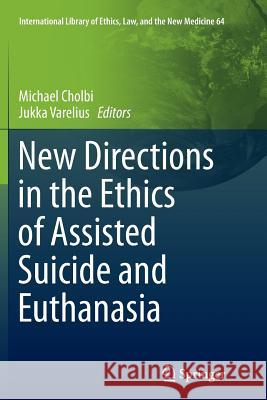New Directions in the Ethics of Assisted Suicide and Euthanasia » książka
topmenu
New Directions in the Ethics of Assisted Suicide and Euthanasia
ISBN-13: 9783319371450 / Angielski / Miękka / 2016 / 252 str.
Kategorie BISAC:
Wydawca:
Springer
Seria wydawnicza:
Język:
Angielski
ISBN-13:
9783319371450
Rok wydania:
2016
Wydanie:
Softcover Repri
Numer serii:
000175420
Ilość stron:
252
Waga:
0.37 kg
Wymiary:
23.39 x 15.6 x 1.4
Oprawa:
Miękka
Wolumenów:
01
Dodatkowe informacje:
Wydanie ilustrowane











